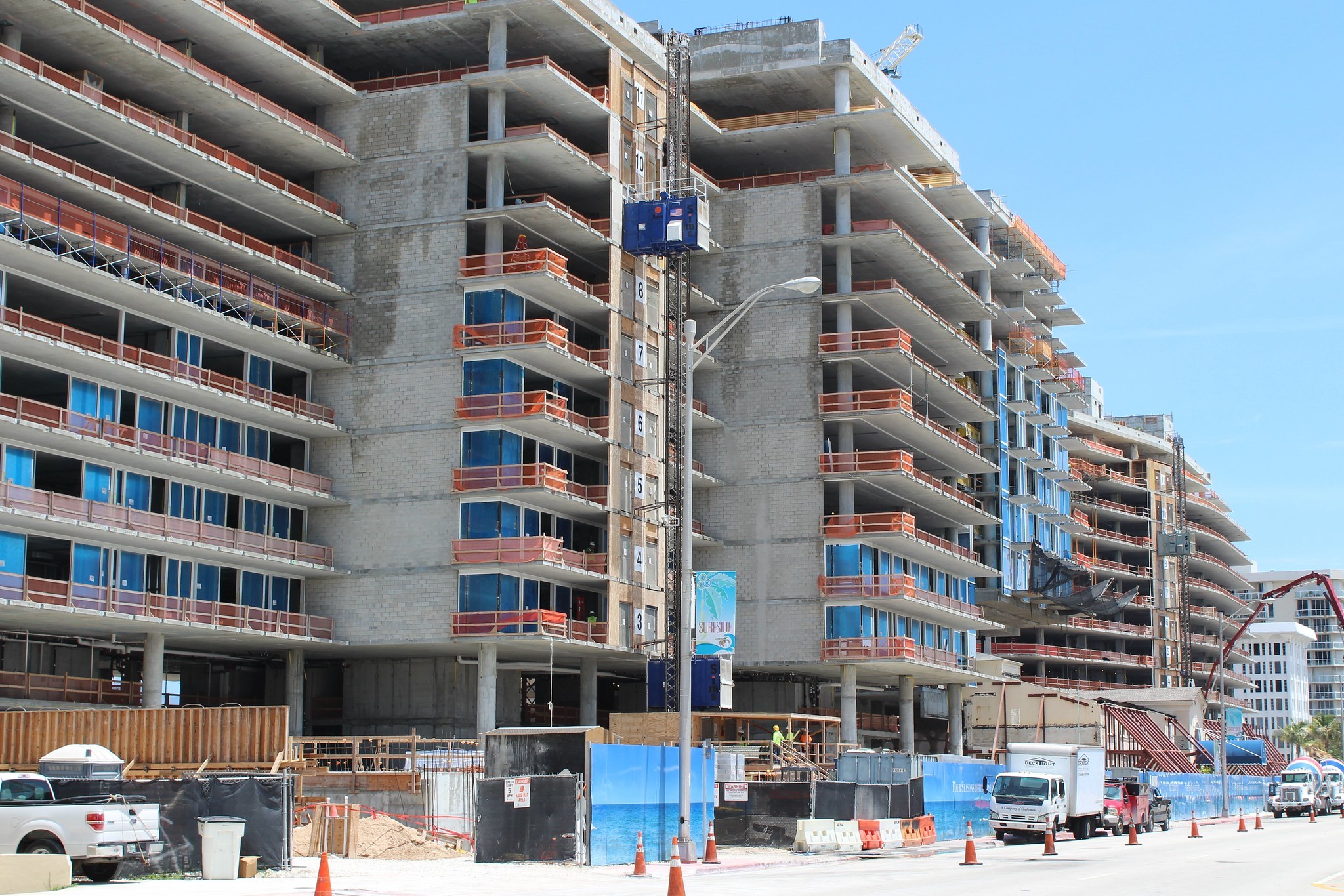A year after a condo tower collapsed, killing 98, experts and officials are eager for more answers and new regulations.

Everyone knew the Champlain Towers South condominium complex was about to collapse.
Community spaces residents walked by every single day showed massive cracks widening alarmingly. Water was routinely collecting in places it shouldn’t have been. Parking lots were periodically host to standing water, there were ongoing water seepage problems in the pool areas as well.
When disaster finally struck, in retrospect, all the signs seemed perfectly clear.
The structural issues residents had been complaining about for months if not years, the major problems compromising the integrity of the building, coalesced into a nightmare at 1:22 a.m. on June 24, 2021.
The collapse of Champlain Towers South, a 12-story structure built in 1981, shocked the nation. It shocked residents of the building, too.
Everyone living in the condo knew about the structural problems, walking by them everyday, but they were hardly aware of the seriousness of what they were seeing or the threat it posed.
While everyone knew the building was becoming gradually more unsafe, and many were oblivious to the major problems, those on the building board knew much more than most.
Residents of the building themselves, board members knew all about the structural damage, the problems; more than anything, they knew how long these problems had been going on. Engineers, inspectors and builders had been through the building on numerous occasions, viewed the damage and submitted reports and recommendations.
What no one in the building knew, least of all the residents, was how it was all supposed to be paid for.
Once upon a time in Florida, building boards such as the one presiding over Champlain Tower condominiums were required to have at least someone with engineering or similar experience.
Once the rule was changed, that critical oversight was inadvertently lost. Without a sense of urgency an expert might have conveyed to the proceedings, arguments and discussions about the financial burden of recommended repairs overshadowed the danger.
As time went on, the damage continued to get worse. The price for fixing the structural damage went up, too. A board with no idea how to pay for millions in repairs was soon facing a bill of twice the original amount.
The financial concerns of the building principals were serious; the threat of collapse was even more so, had anyone but known it.
In the aftermath of the collapse, the world heard the heartbreaking stories of the survivors and those who lost loved ones, those who barely managed to escape and those lucky enough to be elsewhere that night.
From the terrifying first-hand accounts to the heroism of the rescuers and first responders who worked nonstop to save anyone trapped beneath the debris: Americans watched the events in Florida unfold with a sense of surreal disbelief.
This is one of the wealthiest nations in the world. Towers of apartment buildings don’t just collapse. People sleeping in their beds at home have a right to the safety and security of knowing the building they are in won’t collapse around them.
A great many people in Florida live in condos similar to the one which collapse. People in other coastal areas live in similar structures. Florida residents were saddened by the tragedy; they were also angry and afraid.
While much is known now about the cause of the collapse, and the conditions which led to it, litigation is still ongoing with several cases making their way through the judicial system.
In the wake of some of the findings so far, and even in the direct aftermath of the tower’s partial collapse, Florida and other states like New Jersey are considering and enacting sweeping changes in building codes and requirements.
In New Jersey, for instance, in the Atlantic City area, a new form went into effect on January 1, 2022, which requires the property manager to disclose the last date of an inspection by a structural engineer.
Florida is considering several sweeping changes, most of which seem likely to be enacted in wake of the Champlain Towers catastrophe. Protecting residents from shoddy building practices and unqualified boards has become a new priority for a growing bipartisan coalition of lawmakers determined to protect high-rise residents.
The nightmare of Champlain Towers, the tragedy the victims experienced and the court cases ongoing, is something no lawmaker or city manager is eager to see ever again.
Condo owners enjoying coastal life have every right to the security of a home safe from sudden collapse. Lawmakers have a responsibility to close the loophole that allowed the Champlain Tower collapse.
The tragedy Florida experienced in 2021 wasn’t a hurricane or a virus: It was entirely preventable. 98 people lost their lives; it’s up to lawmakers in Florida and beyond to make certain it never happens again.
(contributing writer, Brooke Bell)